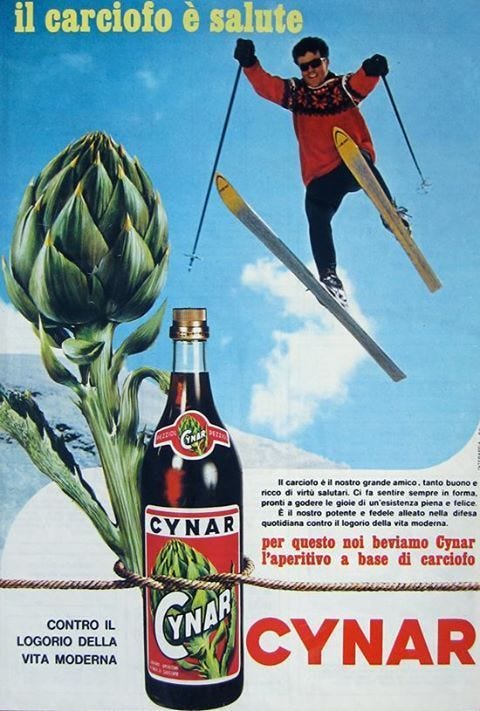For thousands of years now—since Ancient Greece, if my cursory Googling is accurate—humans have been pretending to like artichokes.
For the life of me, I can’t figure out why. The artichoke is a pillar of mediocrity. It’s flavorless, texturally off-putting—it has so little going for it. Stop and think for a moment. Have you ever truly enjoyed eating one?
Sure, there are things you can do to make them palatable. You can batter and deep fry the leaves (technically they’re called “scales”—lovely) and dip them in aioli. That tastes fine. But you could serve me cut-up tire pieces if you battered them, fried them, and dipped them in aioli. I’d eat the crust off and leave the rubber, which is my fundamental strategy for fried artichoke leaves as well.
You can dice artichoke hearts, combine them with garlic, herbs, sour cream, mayo, and four kinds of cheese, bake until melted, and spread the mixture onto a piece of grilled bread. But to call that “artichoke dip”? That’s a level of duplicity usually reserved for career politicians. You’re naming the dish after the least important ingredient; it’s like calling pizza a vegetable because it has tomato sauce.
Of course, there are other uses for the artichoke. You can extract the fiber and cook it down into oligofructose syrup, a low-calorie sweetener that one Amazon reviewer describes as causing “the worst diarrhea of my adult life.” Thanks, Alison from Grand Rapids, Michigan.
The artichoke exists in ingredient purgatory. It’s too bland to be a main, too large to be a side, too clumsy to be a garnish. It doesn’t work as a sweetener, if we take Alison at her word. I view it as an aberration—a culinary misstep that should be removed from our collective plate.
Fortunately, other people think in more enlightened terms. Angelo Dalle Molle, for example, had a different reaction when presented with an artichoke. He decided, in keeping with millennia of human tradition, to turn it into booze.
Dalle Molle spent several years distilling artichoke mash, tweaking the formula after each batch. His experiments reached fruition in 1952, when he produced Cynar (“CHEE-nahr”), the world’s first artichoke-based liqueur.
You’d expect artichoke liqueur to hit the market and collapse on itself immediately. Doubly so if you look at Cynar’s advertising. That image at the top of this newsletter? The one with the skier who’s about to impale his penis on a tree-sized artichoke stalk? That’s the kind of quality visual Cynar’s ad team was putting out at the time.
But Cynar has been beating the financial odds for 70 years. It was an immediate hit in Italy and it continues to be one of the best-sold liqueurs in Europe. It may be the greatest success the artichoke has ever had.
I wanted to find out why, so I brought a bottle of the stuff home a couple weeks ago. It looks hellish—viscous, deep brown-black, like some sort of evil cough syrup. I poured a glass, squared my shoulders, and took a sip.
We’re all wrong from time to time. Our misgivings are unwarranted, our ire misplaced. We take strong stances on important issues—vegetables, maybe, or dinner parties—and sometimes, when new information arises, we’re forced to reconsider.
It turns out the reason for Cynar’s success is simple. It’s delicious. It’s spicy, sweet, bitter, herbal, and surprisingly light. It tastes like artichoke too, in a pleasant way that defies all natural law. Cynar is one of the best bitters I’ve had in a long time.
Perhaps I’ve misunderstood the artichoke. The humble vegetable suffers from a case of mistaken identity. It was never meant to be eaten; it was meant to be distilled into alcohol.
Speaking of: if you haven’t tried Cynar, it’s high time to do so. I’ve been using it in a cocktail called a Bitter Giuseppe, the recipe for which is as follows:
Bitter Giuseppe
2 oz Cynar
1 oz red vermouth
Generous squeeze of lemon juice
6 dashes of orange bitters
Lemon peel, to garnish
I don’t know who Giuseppe was but his legacy deserves praise. The above makes for a very good drink. Stir it well and serve it on the rocks—and toast to the artichokes that made it possible.




I’ll be sure to get a bottle for our next poetry night
Haha this is one of your best posts yet!